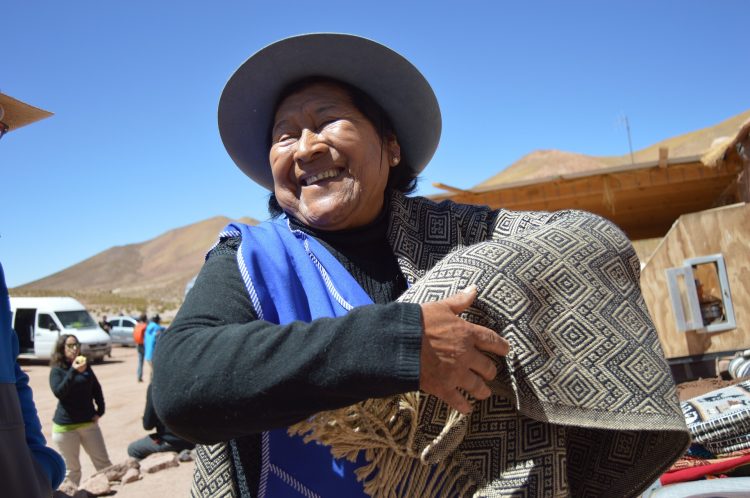On 8 and 10 June, Sessions I and II of Roundtable VI, Fundamental Rights, were held to discuss the contributions the European experience can offer in configuring the new Chilean Constitution in relation to the formulation of a catalogue of rights and the mechanisms for guaranteeing them.

Photo: Jairo Zambrano
This cycle of webinars is part of the “Chile-European Union Forum”, which is held within the framework of the constitutional process. The aim is to exchange European experiences regarding both this process and other essential matters such as social cohesion, access to a welfare system and the guarantee of fundamental rights, showing the lessons learned from a diverse range of European constitutions. The Forum was organised by the European Union Delegation to Chile, the Chilean Chamber of Deputies, the Chilean Agency for International Development Cooperation (AGCID); and the Library of the Chilean National Congress, with support from the European Union EUROsociAL+ programme.
The First Session Roundtable, which was opened by Matías Walker Prieto, a deputy and member of the Permanent Constitution, Legislation, Justice and Regulation Commission, dealt with the general question of which schedule, list or catalogue of fundamental rights would be best for Chile’s new constitution based on its experiences and those from Europe.
Christel Mercadé Piqueras, a legal officer with the European Commission Directorate General for Justice and Consumers explained that the European Charter of Fundamental Rights may be a point of reference for Chile because it is one of the most recent examples of a compilation of traditionally classical rights. “These rights have evolved within the traditions of Europe’s member states and it now makes sense that they are codified within the Charter. Among them, consumer protection, which is a new kind of right that is included in very few national or international spheres, or the protection of personal data that now, with the digital transformation, is essential”, he argued.
In his opinion, the implementation of the Charter should be carried out within a coherent strategy that guarantees its effective application by the Member States, training civil society organisations, rights holders, and professionals to help them exercise effective implementation through strategic litigation.
In this regard, Carmen Morte-Gómez, Head of Division at the European Court of Human Rights, referred to civil and political rights that are included in the 1950 European Convention on Human Rights: the right to life, freedom and security, to a fair trial, to a private and family life, freedom of thought, assembly, association, conscience, religion, the right to marry, the right to an effective remedy, the prohibition of slavery, torture and ill-treatment and the principle of legality and non-discrimination. Morte-Gómez also considered it essential that the constitutions define “the concept of democracy” as well as the “democratic institutions, the formation of the legislative, executive and judicial powers, their competences and balances, the distribution of powers in the central, regional and local states”.
Meanwhile, Liliana Galdámez Zelada, an academic at the Universidad de Chile’s Law School, spoke of the problem of equality and non-discrimination “with which we continue to coexist” and which has been seen “as superficial” by the law.
In the second session, the dialogue and exchange of experiences dealt with the guarantees or mechanisms that ensure the real protection of the rights to be enshrined in the future Constitution. Marta Hirsch-Ziembińska, Senior Advisor on compliance with the European Charter of Fundamental Rights for the European Union Ombudsman, emphasised that human rights “are not only a legal issue, but also an administrative one”, which is why the figure of the Ombudsman “oversees people’s rights, but outside the binary logic between the legal and the legislative”. “Where human rights are not respected, there can be no good administration and the Ombudsman contributes to that better administration”, she added.
Estefanía Esparza Reyes, Director of the National Institute of Human Rights, acknowledged that although the 1980 Constitution has not been effective in protecting fundamental rights, the importance of the inclusion of a writ of protection should nevertheless be underlined – a doctrinal creation that offers more direct recourse in protecting certain rights than the writ of amparo contemplated in other countries. However, she believes it is necessary to advance in the deficiencies within this protection by excluding social rights especially demanded by society from its scope, as well as the right to equality and non-discrimination.
Finally, Domingo Lovera Parmo, Director and Researcher with the Public Law Programme at Universidad Diego Portales, warned about the error that is frequently committed when putting the greatest efforts into and attention on the definition of a catalogue of the fundamental rights to be included in the new constitution, and not on the political and institutional mechanisms for safeguarding these fundamental rights. Which, in his words, means “neglecting the machine room of constitutional texts”, where guarantees or protection mechanisms are inserted. To solve this, he stressed the importance of the role that political mechanisms, and especially parliament, can have in granting real protection to fundamental rights. He was also critical of the powers that the new constitutional text could grant to the Constitutional Court, since in his opinion it has in practice operated as a third Chamber that amends the word of the law, something that is viewed negatively by the public.



